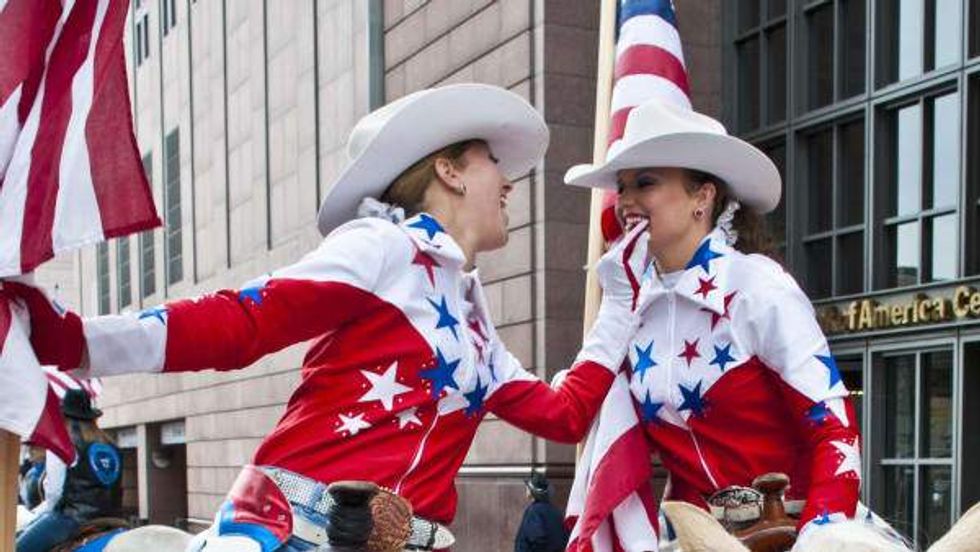Upstairs, downstairs
In an up-and-down season, change comes to Downton Abbey with shocking cliffhanger
Spoiler alert: This column reveals crucial information about Downton Abbey's season ending episode.
In the first episode of Downton Abbey’s third season, Cora Crawley’s wealthy American mother, Martha Levinson, (played by Shirley MacLaine) breezed into England and attempted to nudge the Downton denizens into the 20th century and to maybe try a few American innovations. This challenge became a major theme of PBS’s Emmy winning show, as characters were forced to choose between clinging to tradition and convention or evolving to survive.
Martha’s advice might also be seen as a admonishment from series writer/creator, Julian Fellowes, to himself that if only he had adopted a few American practices, namely making television actors sign ironclad five-to-seven year contracts, he might not have been left with a season filled with stellar acting and strong writing but marred by erratic pacing.
Off-screen drama spills on-screen
Yes, death has come twice to Downton this season, and Fellowes’s writing struggled to deal with it as much as the Crawleys did. Sybil’s death was the stuff of great melodrama and doubled as a public service announcement on preeclampsia.
And for Matthew to survive WWI and partial paralysis in season two only to die in a car crash on the happiest day of his life had to be truly shocking for those unspoiled.
This challenge became a major theme of PBS’s Emmy winning show, as characters were forced to choose between clinging to tradition and convention or evolving to survive.
Yet while these deaths produced moments of riveting television, they seemed less organic to the actual story Fellowes wanted to tell and more about him having to write around UK actors abandoning Downton for greener pastures, which presumedly, lie beneath the Hollywood sign.
Trying to write for two actors’ exits while keeping their on-screen spouses appeared to leave Fellows scrambling and unable to time the stories together.
Some plots materialized and resolved so quickly we forgot them and so perhaps did the other characters. Remember when Mrs. Hughes had a cancer scare or when Dr. Clarkson first felt the stirrings of love for Isobel? Neither do they.
How can we miss you if you never go away?
The real pacing problems came from plots that either refused to get started or ever ended. Matthew forever agonized over whether or not he should save Downton by unleashing his one superpower, inheriting other people’s money. The continuing adventures of Isobel and prostitute Ethel possessed the immortal lifespan of a bad CBS sitcom.
But the one plot that should have been suddenly hit by a truck (too soon?) was the Bates prison story.
I loved when Edith finally found a talent and saw her own worth, but it took half the season for her to write a bloody letter to the editor. Meanwhile down in the kitchen, Daisy, Ivy, Albert and Jimmy were reminding us why no one fondly remembers their junior high school days.
But the one plot that should have been suddenly hit by a truck (too soon?) was the Bates prison story. As someone who enjoyed all six seasons of the HBO prison soap opera Oz, I can state emphatically that not even a naked Christopher Meloni could have saved this dismal and grey story.
The Bates tribulations did produce an image that might have symbolized each character’s struggle for the first half of the season. The scenes of Bates walking round and round the prison yard exercise circle, going absolutely nowhere at a steady pace, could represent the endless circles many of the other characters were making in their own plots. For the first half of the season no one went anywhere or really did anything but die or passively inherit money, and the stately walls of Downton became as claustrophobic as a prison.
It was only in episode 5 when Bates finally broke the circle and threatened his evil cellmate with a good shanking that stuff actually began to happen.
Breaking the circle
It took too long to get there, but each of the characters had a moment when they symbolically stopped walking their own static circles of tradition and convention and finally said, “Hey, enough of this Edwardian scene. Let’s bust out of jail, get a writing career, modernize our farming practices, ship off that prostitute/cook, kiss a cute footman, solve our infertility problems, put on a fabulous hat, and go to London to hear some jazz, baby.”
The one plot that was well written, acted and paced was the O’Brien vs. Thomas battle.
When each character was given that choice of embracing the roaring '20s in all their messiness or scampering back into the pre-war comfort and conformity it made for some fine television. Unfortunately, all the dynamic happenings in the season happened in the space of two episodes because so much time was spent making Sybil’s death as tragic as possible and Matthew’s death as ironic a possible.
Saving the season
The one plot that was well written, acted and paced was the O’Brien vs. Thomas battle that began with hilarious revenge scenes involving stain remover and missing shirts and escalated into a story that threatened Thomas’s freedom and, thanks to Rob James-Collier’s phenomenal performance, gave us a glimpse into Thomas’s lonely, stripped soul.
Thanks to Fellowes, half the main characters got caught up in the story, which managed to make Bates interesting again and rehabilitate Robert back into a man of integrity, or at least one who cares passionately about cricket. Finally, it turned Thomas, the inept villain of season one and two, into one of the most layered characters on the show.
Dame Maggie Smith also did her part to bridge some of the haphazard stories together. Her Violet Crawley remained the countess of our hearts, keeper of the quips, but in this season we also got to see a master manipulator who, with the upmost propriety, managed to clean and tie up many of the errant plots.
For a woman who has never had a job, Violet certainly became a one-woman human resource department, finding characters work and getting them moving on with their lives.
So for viewers sake Fellowes, get those multiyear contracts out and get James-Collier and Smith to sign on that dotted line.





